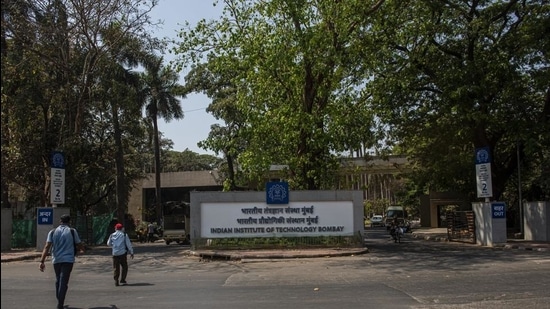Very few PhD students in top Indian institutes from SC, ST category: Data
The representation of students belonging to Scheduled Caste (SC), Scheduled Tribe (ST) and Other Backwards Classes (OBC) categories in the PhD programmes of premier science institutions remains poor, according to data released by the ministry of education (MoE) in Rajya Sabha, on Thursday
The representation of students belonging to Scheduled Caste (SC), Scheduled Tribe (ST) and Other Backwards Classes (OBC) categories in the PhD programmes of premier science institutions remains poor, according to data released by the ministry of education (MoE) in Rajya Sabha, on Thursday.

At the Indian Institute of Science (IISc) in Bengaluru, only 2.1% of candidates admitted to the PhD programmes between 2016 and 2020 were from ST category, 9% from SC and 8% from OBC categories. In the integrated PhD programmes at IISc, 9% of the total admitted candidates were from SC, 1.2% from ST and 5% from OBC categories.
In the 17 Indian Institutes of Information Technology (IIITs), barely 1.7% of total PhD candidates were from ST category, 9% from SC category and 27.4% from OBC categories. The representation is equally skewed against reserved category PhD candidates between 2017 and 2020 at the 31 National Institutes of Technology (NITs) and seven Indian Institutes of Science Education and Research (IISERs).
This is against a 27% reservation of all seats in government institutes for OBC candidates, 15% for SC category and 7.5% for ST category.
The alarming under-representation of reserved category candidates in PhD programmes of these institutes was revealed on Thursday in Rajya Sabha by Ramesh Pokhriyal, Union minister of education.
The admission figures were provided in response to the questions raised by two members of the upper house Elamaram Kareem and Bikash Ranjan Bhattacharya.
In November 2020, HT had reported a similar trend of under-representation in the PhD programmes at the Indian Institute of Technology-Bombay (IIT-B), despite receiving applications from SC, ST and OBC category candidates. Between 2015 and 2019, only 1.6% of all PhD candidates at IIT-B were from ST category, 7.5% from SC category and 19.2% from OBC category.
Pokhriyal’s responses on Thursday also included data on dropouts from PhD programmes in these institutes. Of all the institutes, seven IISERs had the worst record with 13.3% of all dropouts from the ST category.
Following the revelation in Rajya Sabha, the central executive committee of the Students’ Federation of India (SFI), a national student body, issued a statement: “The persistent violation of reservation norms in the nation’s premier technical institutions has contributed to the underrepresentation of teaching faculty from the marginalised and backward groups at the same institutions. This has proven to be a major hindrance in achieving an inclusive learning atmosphere.”
“We demand immediate intervention from the President of India on the issue. SFI also appeals to all members in the parliament to take up this alarming issue in the ongoing parliament session and also join with the democratic sections in the fight for social justice,” said VP Sanu, president, SFI.
Pokhriyal has informed the Upper house that several measures were being taken to address the under-representation of SC, ST and OBC category students in PhD programmes.
However, experts said that while access to quality education at primary and secondary school levels was poorer for reserved category students, institutional prejudice against reservations cannot be ruled out.
“One cannot rule out the bias of caste and class in the admission processes of institutes. The reservation policies have been resisted by higher education institutes, particularly in the science and technology streams, on the basis of the argument that reservations will bring down merit,” said Avatthi Ramaiah, chairperson of Centre for Study of Social Exclusion and Inclusive Policies at the Tata Institute of Social Sciences (TISS), Mumbai.
Meanwhile, the reduction in the overall intake capacity of PhD candidates across institutes has further reduced the representation of reserved category candidates, Ramaiah added.
On July 5, 2016, University Grants Commission (UGC) issued a notification stating that a research supervisor/co-supervisor, who is a Professor, cannot guide more than eight PhD scholars. An associate professor as research supervisor can guide up to a maximum of six PhD scholars and an assistant professor can guide up to a maximum of four PhD scholars.
“The government does not want an intellectual class that can raise a voice against its policies. The reduction in intake capacity of PhD programmes is a clear indication of this,” said Ramaiah.
“Initially, the number of applicants from reserved categories in higher education institutes were few. However, the situation has improved now with more applications coming in. While the lack of representation has to be understood in the context of the number of applications, the lack of representation at IIT-B is concerning, irrespective of the reasons behind it.”
Sukhadeo Thorat, former chairperson of UGC and author of Blocked by Caste: Economic Discrimination and Social Exclusion in Modern India, said that higher education institutions must have a sympathetic attitude towards reserved category students while admitting PhD candidates.
“Institutes must practice relaxation of criteria to ensure proper representation of students, even within the limited intake capacity,” said Thorat.



